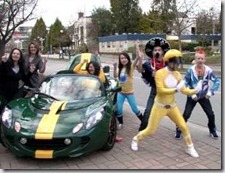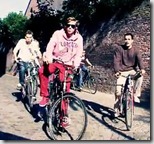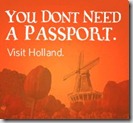Color my world
 A Slate commentator recently remarked that the test of a good novel is whether it colors the way that you see the world. When you put the book down, do the perceptions and feeling carry on into real life, for good or bad?
A Slate commentator recently remarked that the test of a good novel is whether it colors the way that you see the world. When you put the book down, do the perceptions and feeling carry on into real life, for good or bad?
I think that the same thing follows from our connections: when people are doing well, it gives a lift to all aspects of life. When people are having troubles, it tints other events as well.
I’ve been thinking about this for the past few days because I’ve been in a bit of a funk for no good reason. Our funding is committed (although still trickling into the bank) for the two businesses, and I’m starting to shift the balance of my activity from lawyers and accountancy back to scientists and project management. With two years of hard work behind me, defining the business and raising the money, things are starting to take on a form and substance that they haven’t had before.
So, what’s the problem?
I’ve been finishing Super Sad True Love Story, a dystopian novel filled with dysfunctional lives dependent on overbearing government and technology (By reading this sign you have denied its existence of this object and imply consent for this policy). Amazon files it under Humour, but cyberpunk novels always leave me empty and depressed. I keep hoping that the characters will chip out of the sand trap that New York has become for them, but it’s not looking good.
Real world events don’t offer much change either. One friend is trying to sort through long-term visa options here in the UK while wishing that there was someplace less intrusive that they could tuck into. Another seems unable to come to terms with the imminent dispersion of his company after ten years of building it; a third is unable to face the reality of their being fired from a career they loved. I got a call from the Netherlands saying that unless I paid three month security deposit on a garage space (unfurnished), I would have to give up the spot. Really! Shove it: but it feels like cutting a cord to the Netherlands at the same time. Paying the bills has depleted the accounts again, as it does every month, and I promise myself that the pending deals will close in a week or two and fix the situation, as I do every month.
 So, I would conclude that everyday stories can affect life’s prism as much as any fictional novel. And the only solution I know is step back and get a grip, sometimes with a good airing out in open places, or a close talk with friends. And so it is, writing a bit today:
So, I would conclude that everyday stories can affect life’s prism as much as any fictional novel. And the only solution I know is step back and get a grip, sometimes with a good airing out in open places, or a close talk with friends. And so it is, writing a bit today:
…it’s nice to have absolute control over the product and the business, to see things grow when I apply effort to them, to get good people gathered around a worthwhile project, and to keep what I (hopefully, someday) win. Days tend to be busy and full: I think that I will forever take on more than I can keep up with (teaching, writing a book chapter), and I wish that I had more time (and money) for leisure travel. But, with a pretty clear vision of where I’m going and what I hope things can become in another year, this is the time to really dive in and make it all happen.
Labels: Idle chit-chat









